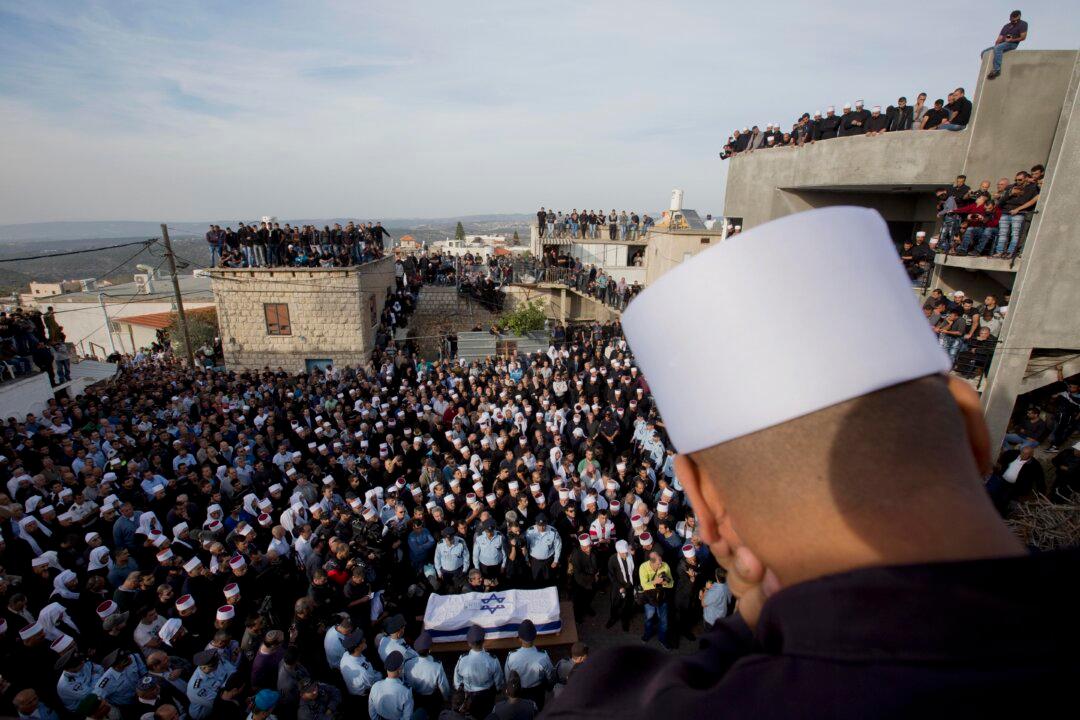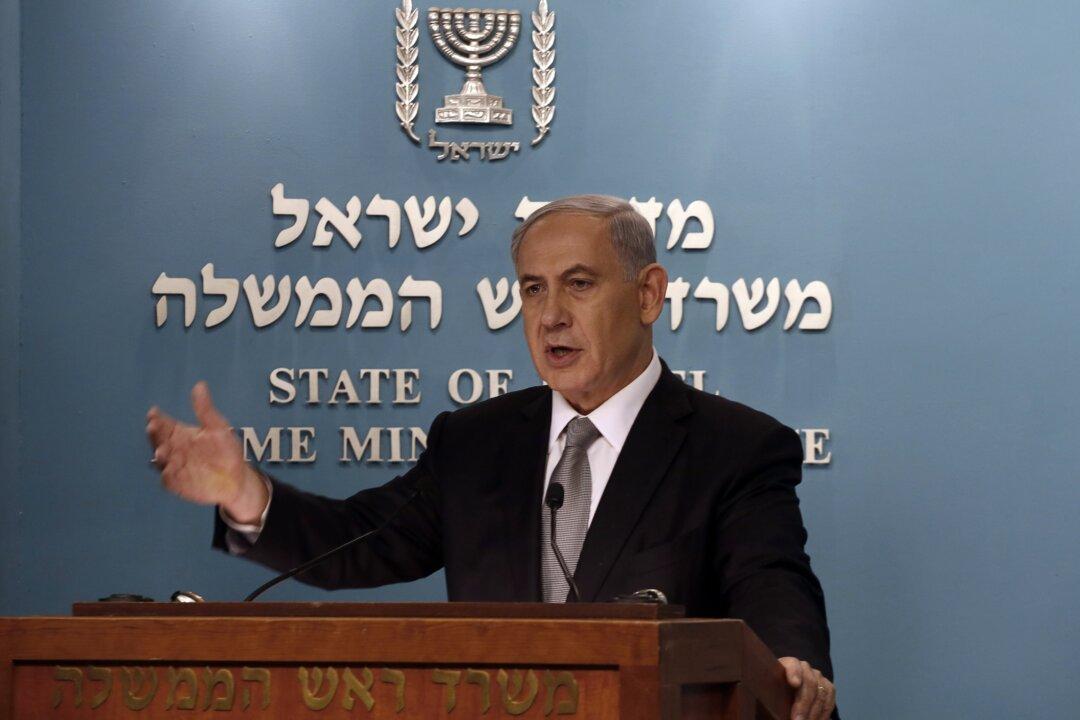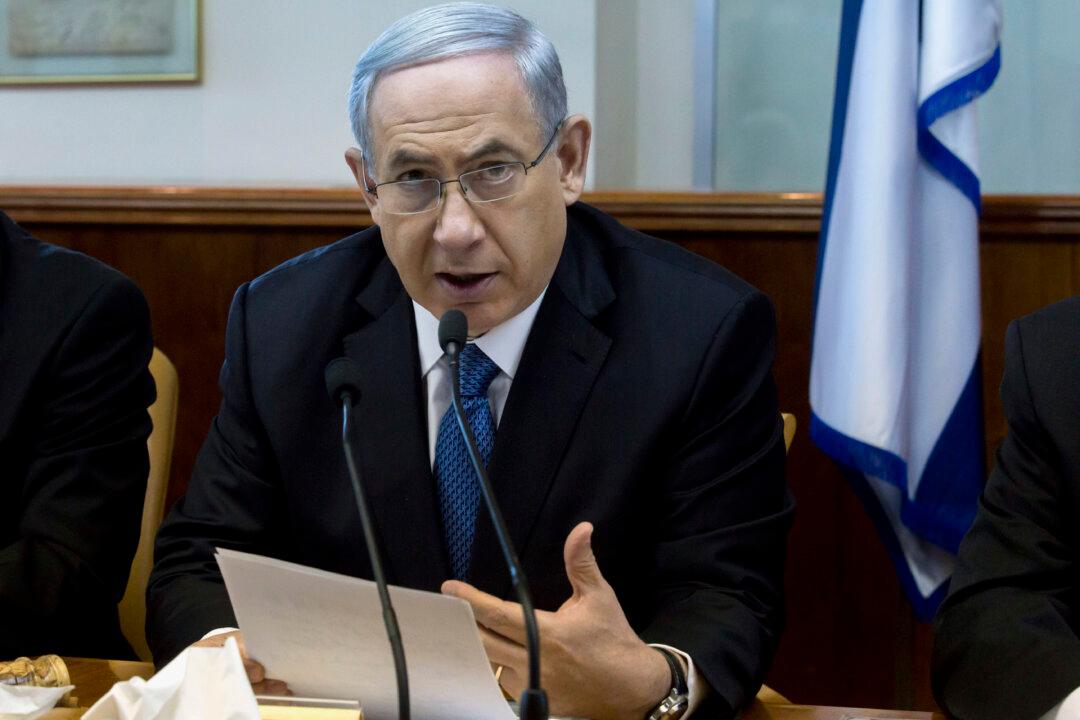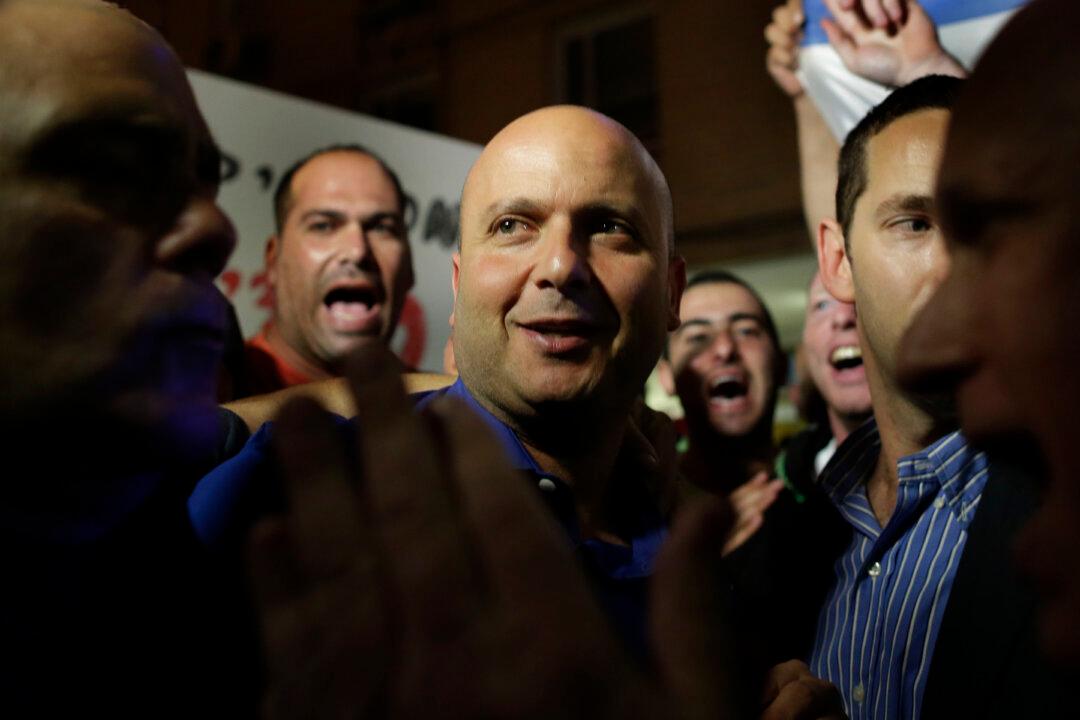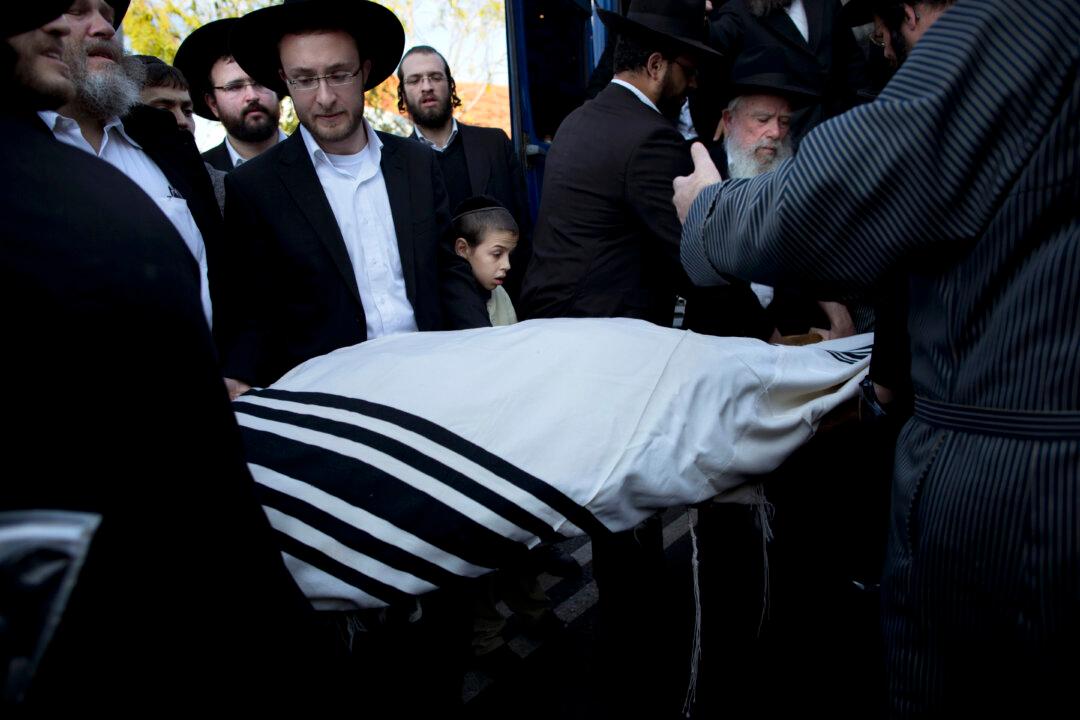JERUSALEM—Streets are subdued, marketplaces are quiet and people are on edge in Jewish areas of Jerusalem, where Arabs have been using meat cleavers, guns, screwdrivers and even their cars in deadly, small-scale attacks.
The holy city — which Israel says must forever stay united — has rarely seemed more divided.
In their 47th year of occupation, Palestinians are seething with anger over neglect and discrimination, continued Jewish settlement in their areas, and a belief, despite official denials, that Israel is scheming to take over their most revered site.
This anger, coupled with Jewish fears of further violence, has left the city’s 800,000 residents apprehensive, seemingly united in the belief that things will get worse before they get better.
“I’m really not safe, and before leaving the house I think twice,” said Sara Levi, a 22-year-old stay at home mother. “We are not calm, and we hope there is going to be an end to this, and that it is not just a beginning.”
Levi spoke as she waited at a stop for Jerusalem’s light rail train — a frequent target of Palestinian violence. The trains, meant to serve as a symbol of a united city, are frequently pelted with stones when passing through Palestinian areas. There have been two deadly attacks in recent weeks by ramming cars into crowded stations.
In a separate attack, a Palestinian gunman on a motorcycle shot and seriously wounded a prominent Jewish activist who has pushed for greater Jewish access to the city’s most sensitive holy site — the hilltop compound known to Jews as the Temple Mount and to Muslims as the Noble Sanctuary.
The violence reached a new turning point Tuesday when two Palestinian attackers burst into a crowded synagogue during morning prayers, killing four worshippers and a policeman with the meat cleavers and gunfire. It was the deadliest attack in the city since 2008, and gruesome pictures of blood-covered holy books and prayer shawls shocked a country long accustomed to political violence.
Those deaths brought to 11 the number of people killed by Palestinian attacks — most of them in Jerusalem — but also in Tel Aviv and the West Bank in recent weeks. At least five Palestinians involved in the attacks were killed.
In Jewish parts of Jerusalem, traffic was lighter than usual Wednesday. Fewer people were riding the train, and the crowds that normally pack the city’s Mahane Yehuda open-air marketplace were thin.
“Business is weak today. It was worse yesterday,” vegetable salesman Itzik Shimon said as he stood at his empty stall. “People are afraid. Can you blame them?”
In parliament, a group of mothers implored lawmakers to hire more security guards for day care centers. The city says it has increased protection, but many kindergartens remain without guards.
“There was a feeling that with yesterday’s attack ... terrorists are trying to send a message that they can get anywhere in Jerusalem,” said Dena Scher, a member of the group. “Everyone is concerned.”
Scher, a mother of two young children, said her routine includes new precautions — such as standing away from crowds at bus stops. “I’m definitely being warier, looking around more when dropping off or picking up the kids,” she said.
Identifying the cause of the unrest is an imprecise science.
Relations with the Palestinians took a downturn with the collapse of U.S.-brokered peace talks in April. Then Palestinian militants in the West Bank kidnapped and killed three Israeli teenage boys in early June. Weeks later, Jewish extremists kidnapped and killed a Palestinian teenager in a revenge attack in Jerusalem.
The violence widened during the summer when Israel fought a 50-day war against Hamas militants in the Gaza Strip. Jewish nationalists have moved into a tense Arab neighborhood in east Jerusalem, the section of the city claimed by the Palestinians as their capital, and Israel has pushed forward plans to build hundreds of homes for Jews in the eastern part of the city.
But perhaps more than anything, Palestinians point to turmoil at the Jerusalem holy site as the cause of their consternation. The Temple Mount, the site of the biblical Hebrew temples, is the most sacred spot in Judaism. It is the third-holiest place in Islam, revered by Muslims as the location where the Prophet Muhammad ascended to heaven, and is home today to the Al-Aqsa Mosque and the Dome of the Rock.
Under a longstanding agreement, Muslims administer the compound under Jordanian custody. While Jews are permitted to visit, they are not allowed to pray. In recent months, a growing number of Jewish worshippers have visited, many of whom seek greater access and the right to pray.
These visits, which are closely covered in the Palestinian media, have sparked clashes between Palestinian youths and Israeli police. In turn, Israel, as a security measure, has frequently restricted Muslim access to pray, fueling accusations that it is secretly plotting to take over the site, despite repeated pledges from Prime Minister Benjamin Netanyahu that Israel has no intention of changing the arrangements.
This perceived assault on Al-Aqsa has fueled an even deeper sense among Palestinians that they are embattled and alone.
“We are angry because we feel lost,” said Mahmoud Ammouri, a teacher in the Arab neighborhood of Shuafat. “What has happened in the Al-Aqsa Mosque is just the explosion of years of suffering.”
Israel captured east Jerusalem in the 1967 Mideast war and annexed the area to its capital. While the move has never been internationally recognized, Israel celebrates the unification of the city each year. East Jerusalem is home to the Old City, where places sacred to Jews, Christians and Muslims are located.
Although Israel proudly says the city can never be divided again, it is riven by separations of its three major population groups: secular and traditional Jews, ultra-Orthodox Jews and Arabs.
The Palestinians are in an especially precarious situation.
Most have never accepted Israeli citizenship and instead hold residency rights. While they have access to Israeli services and freedom of movement that their brethren in the neighboring West Bank don’t have, they have suffered from years of neglect, discrimination and poverty. The result is a disenfranchised group that feels separate from Jewish Israelis and abandoned by the Palestinian leadership in the West Bank. Most of the recent attacks have been carried out by Palestinian men from east Jerusalem.
The threat of vigilante retribution and fears of police harassment also loom for Palestinians. Following Tuesday’s attack, a large crowd of Jewish youths marched through downtown Jerusalem calling for revenge and chanting, “Death to Arabs.”
“Palestinians in the city feel that the Palestinian Authority, the Arabs and the Muslims are neglecting them, while Israel is targeting them. They don’t know to whom they belong,” said Zakaria Qak, a teacher of national security in Al-Quds University.
Mayor Nir Barkat has said he is quietly working with Arab leaders to ease tensions, but his response to the violence has focused heavily on security.
Police say they have sent an additional 1,000 officers to the streets in recent weeks, placed barricades around the train stops, and stepped up their presence in Arab neighborhoods.
Netanyahu has ordered security forces to resume a policy of home demolitions, a punitive tactic that has caused much controversy. Early Wednesday, Israel demolished the home of a Palestinian who attacked one of the light rail stations last month.
Barkat on Wednesday showed Netanyahu the city’s new command center of its “observation unit,” which operates surveillance balloons to monitor public disturbances.
Sheikh Mohammed Hussein, the top Muslim cleric in Jerusalem, said years of Israeli practices make life very hard in east Jerusalem. “The people in our city don’t see a political horizon, and they need to feel that there is a horizon and that they are part of it,” he said.
Sima Kadmon, a commentator in the Yediot Ahronot newspaper, said it was time for Israeli leaders to take responsibility for the troubles in Jerusalem and even consider relinquishing control of some Arab neighborhoods.
“So we can demolish houses, we can put up roadblocks, we can increase the number of guards. But none of this will bring quiet to a city that has, unwillingly, become a city that doesn’t rest, and from day to day, becomes a city with no hope,” she said.
From The Associated Press. Alon Bernstein contributed reporting.
